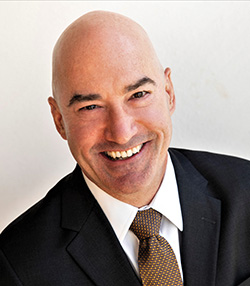FREE CONSULTATION: 214.522.9404

If you were in a car accident involving an intoxicated driver, you should seek the assistance of a Dallas drunk driver accident attorney.
Driving while drunk or on drugs is highly irresponsible, and the practice causes too many deaths and serious injuries in Texas and across the United States every year. If a reckless drunk driver has caused you injuries or property damage, you have the right to pursue them for compensation.
Here, we explain exactly what you’ll need to do.
How a Dallas Drunk Driver Accident Attorney from Crain Brogdon, LLP Can Help You
Every road user owes every other road user a duty of care when they’re behind the wheel. This duty requires drivers to travel carefully, in accordance with all relevant traffic laws. When a driver fails to uphold this duty (such as by driving while intoxicated) and causes serious injuries, property damage, or death, those affected have the right to compensation.
However, securing this compensation isn’t always easy, even if the case in question seems straightforward.
Texas is an at-fault state, which means the insurance company of the party who causes an accident is liable to pay the damages of everyone affected. But, if an insurance company argues that its policyholder was not, in fact, responsible for a given accident, or that the individual in question was only partly to blame, it can reduce its liability or avoid it entirely. If you choose not to work with an expert attorney after a drunk driving accident, you run the risk of allowing a billion-dollar insurance company to take advantage of you.
At Crain Brogdon, LLP, our team is well-accustomed to dealing with these kinds of challenges. From the moment you visit us for a free initial consultation, we’ll ensure your rights are protected.
We’ll pursue the best possible result for you by:
- Collecting evidence: We seek out and compile the crucial evidence that will prove your case, including from the accident scene, police reports, and witness testimonies.
- Negotiating with insurers: We handle discussions with insurance companies so you don’t have to. Insurers often try to limit their losses in these cases by making lowball offers; we ensure that you understand the extent of your compensation rights and take this into consideration before accepting any offer.
- Representing you in court: If your case goes to trial, we’ll be ready to fight for you before a judge and jury.
Intoxicated Driving and Punitive Damages
In personal injury cases stemming from drunk driving incidents, victims are often entitled to seek punitive damages alongside ordinary compensation. Unlike compensatory damages, which aim to make the victim whole again, punitive damages are designed to punish the offender and deter similar reckless behavior in the future.
Punitive damages are not available in all, or even most, personal injury cases. A defendant must display gross negligence in order for a court to consider awarding punitive damages; however, driving while intoxicated can amount to such negligence.
The potential availability of punitive damages in your case will depend on a range of factors. To learn more about whether you might be entitled to receive them, you’ll have to consult with a drunk driver accident lawyer.
How Do Police Prove Drug-Related Intoxication?
While alcohol intoxication is commonly tested using breathalyzers and blood tests, police must use different techniques to identify drug-related impairment.
One evaluation technique, which police can also use for alcohol-related intoxication, is field sobriety testing. This involves examining a driver’s behavior and physical characteristics to look for telltale signs of drug use, such as loss of coordination or dilated pupils.
In some cases, drug recognition experts may administer testing at the roadside. These are police officers with specialized training that allows them to assess whether a driver is under the influence of specific drugs.
If an officer believes probable cause has been established through one of these means, they can arrest the driver on suspicion of driving while impaired.
Texas Dram Shop Laws
If a drunk driver causes you an injury, it may not only be the driver who has breached their legal duty of care to you. If the driver became drunk at a bar or restaurant, and the person in charge of serving them alcohol should have stopped doing so, the server may also be liable for damages. This rule is known as a dram shop law and is provided for under the Texas Alcoholic Beverage Code.
The rationale behind dram shop laws is to encourage responsible serving practices and offer additional compensation avenues for victims. In order to succeed in a dram shop action, you must be able to prove the following three elements:
- The defendant establishment served a person who was obviously intoxicated.
- That person’s intoxication led directly to your accident.
- The accident caused you real harm, such as through bodily injury or property damage.
Filing a dram shop lawsuit doesn’t prevent you from seeking compensation from the drunk driver who hit you; it just provides you with another avenue through which to pursue payment, and to hold an irresponsible business to account for contributing to your injuries.
It’s important to note that an establishment must actually sell alcohol in order to be held liable in this way; the host of a social gathering who provides alcohol for free cannot be sued under Texas dram shop laws.
Criminal Implications of a Car Accident Caused by a Drunk Driver
Driving under the influence of alcohol is not merely a traffic violation in Dallas—it’s a serious criminal offense with significant repercussions. When a drunk driving incident results in an accident, especially one causing serious injuries or fatalities, the legal consequences escalate dramatically.
In Texas, a basic driving while intoxicated (DWI) charge can range from a Class B misdemeanor for a first-time offense to a felony for repeated offenses or offenses featuring other aggravating factors. The severity of the charge may be influenced by factors like the driver’s blood alcohol concentration (BAC), whether minors were in the vehicle, and the extent of injuries caused.
While we don’t deal with criminal issues at Crain Brogdon, LLP, we understand that our clients often want to see the drunk drivers who have changed their lives for the worse face criminal charges. These proceedings take place separately from any civil action you file, and the outcome of one case does not necessarily have a bearing on the other.
Frequently Asked Questions (FAQs)
How does Texas define legal intoxication?
In Texas, drivers with a blood alcohol concentration (BAC) of 0.08% or higher are considered legally intoxicated. However, drivers can be stopped and cited for impaired driving regardless of BAC, if their driving is erratic or dangerous and a police officer concludes that intoxication is a factor.
What if the drunk driver who hit me fled the scene?
Fleeing the scene of an accident without providing information to other parties is a crime. In addition to facing DWI charges, the driver could also be charged with a hit and run. In cases like these, it’s essential to gather as much evidence at the scene as possible, as you won’t be able to recover compensation from a driver if you don’t know who they are.
I was in the car with a drunk driver when we crashed. What rights to compensation do I have?
Passengers in cars with intoxicated drivers generally have the same rights to compensation as anyone else in these cases. However, there may be mitigating factors that a court will view as contributory negligence; for example, the failure to wear a seatbelt. To learn what’s likely to happen in your specific case, you’ll have to consult with a lawyer.
Are there special considerations for underage drunk drivers?
Texas adopts a zero-tolerance policy for drunk drivers under the age of 21. Any amount of alcohol can result in a DWI charge for minors, and a driver under the age of 21 with detectable alcohol in their system is usually more likely to be found negligent than a driver in the same situation who is of age.
If I’m involved in a DWI accident but believe the other driver was also impaired, does that affect my case?
Potentially. Texas follows a comparative fault rule, which means that you can still recover compensation when you’re partially at fault for an accident, but the amount you’re entitled to recover will be reduced in line with your degree of fault for what happened. So, whether or not you’ll be entitled to compensation, and in what amount, will depend on the specific circumstances of your case.
Can I seek compensation if the drunk driver was under the legal limit but still impaired?
Yes. If you can prove that the driver’s impairment, even if below the legal limit, contributed to the accident, you can potentially seek damages.
Lawyers for Drunk Driving Accidents in Dallas Who Care About You
Drunk and drugged driving turns lives upside down every single day. If another road user has caused you life-changing injuries because they drove instead of taking a bus or Uber after having a few drinks, there’s no reason why you should have to foot the bill for their negligence.
Don’t wait around to start pursuing justice. Contact Crain Brogdon, LLP today to schedule a free initial consultation. You can reach us over the phone at (214) 522-9404 or by using our online contact form.

Attorney Quentin Brogdon
Quentin Brogdon has over thirty years of experience and expertise in the field of personal injury trial law. He is board certified in both personal injury trial law and civil trial advocacy. Quentin has received an AV rating from Martindale-Hubbell, the highest possible rating. This rating reflects an attorney’s ethics and abilities according to reviews from fellow attorneys. [ Attorney Bio ]






